What is cortisol?
Cortisol is our main stress hormone. It is produced in the adrenal glands when we are confronted with a stressor, and it is part of the “fight or flight” stress response. In modern life, we are virtually inundated with stress. Chronically elevated cortisol can become a problem and ultimately could lead to “burn out,” as well as many other health problems. It is a good idea to try to consciously do things to reduce your cortisol levels and keep them low. We will discuss some specific foods that reduce cortisol and general diet advice to help reduce your cortisol.

Which foods can help?
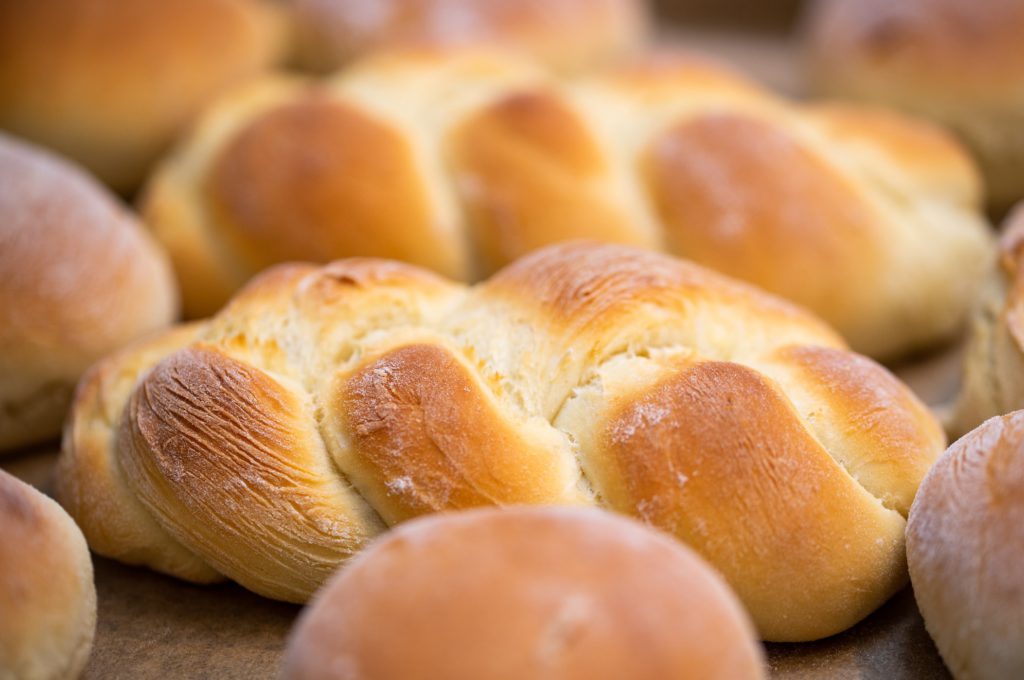
Carbohydrates
In one study, increasing carbohydrates as part of a whole-foods diet decreased cortisol levels, particularly during the period following a stress test (Soltani H, 2019).
This same effect did not happen with eating more protein (Soltani H, 2019). Another, older study found that a diet high in carbohydrates reduced cortisol and negative mood after stress (Markus R, 2000).
Focus on good gluten-free carbs like rice, white potatoes, sweet potatoes, root vegetables, vegetables (read more in our article, “5 Vegetables that Affect Your Gut”), fruit, millet, amaranth, and other gluten-free grains.
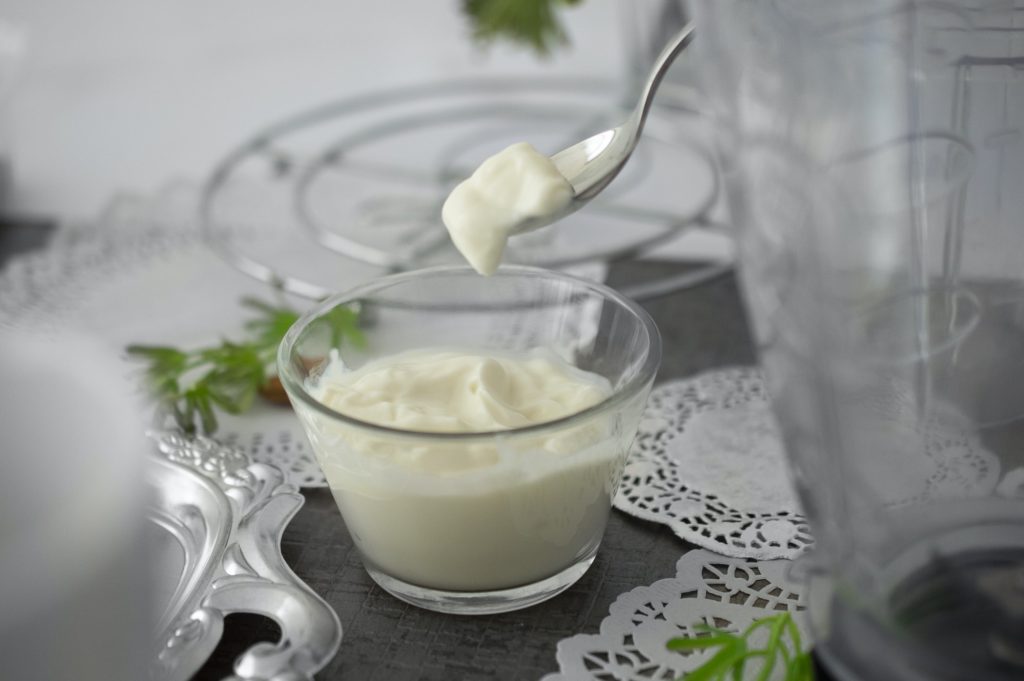
Probiotics
One study of athletes found that probiotics contributed to reduce cortisol levels, indicating improved responses to physical or mental stress (Jäger R, 2019).
One specific strain of probiotic, Bifidobacterium longum 1714™, has been shown to decrease cortisol and stress responses in people exposed to acute stress (Wang H, 2019).

Prebiotics
The composition of the gut microbiome has an impact on the regulation of the stress hormone cortisol (Schmidt K, 2014). Prebiotics are foods that feed the good gut bacteria.
The best sources of prebiotics are rice, cooked and cooled (for 24 hours); white potatoes, cooked and cooled (for 24 hours); raw garlic; lightly cooked, still-crunchy onion; green bananas; asparagus; leeks; and chicory root.
One study looked at the effects of two prebiotics on the stress response. Prebiotics were associated with reduced cortisol levels and a change in the focus of the participants, from negative thinking to positive thinking (Schmidt K, 2014).
Previous studies have found that probiotics have an anxiety-reducing effect, which ties in with these findings on prebiotics. The study concluded that prebiotics may balance out the stress response as probiotics do (Schmidt K, 2014).
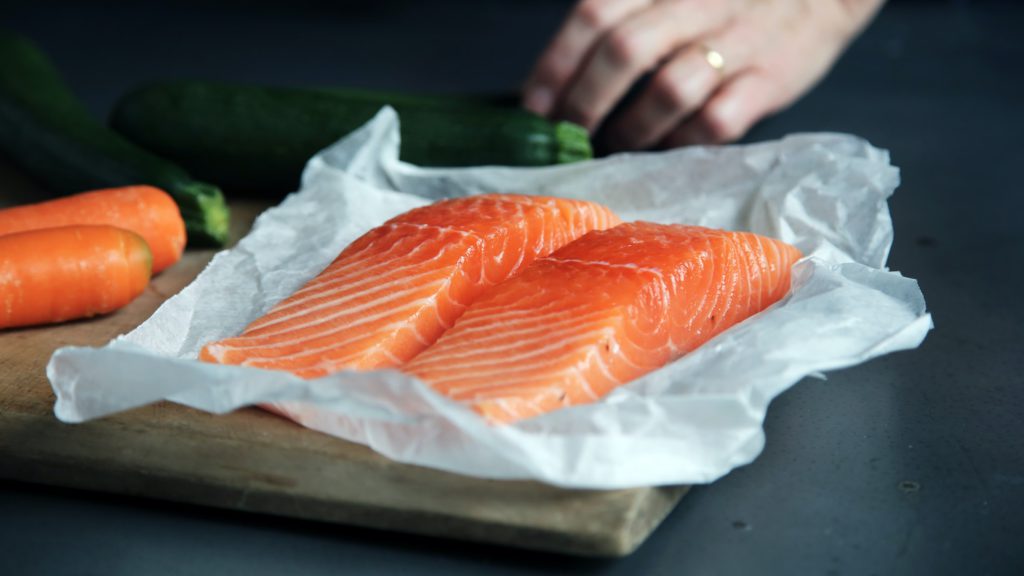
Omega-3 fats
Three weeks of a diet with Omega-3 fats showed a decrease in mental stress and cortisol among subjects of one study (Delarue J, 2003). Omega-3 fats inhibited the adrenal and stress response activation that happens as a result of mental stress.
The study authors proposed that this stress-inhibiting response was related to the central nervous system function. Good sources of Omega-3 fats are wild salmon, herring, anchovies, sardines, flaxseed oil, and walnuts.
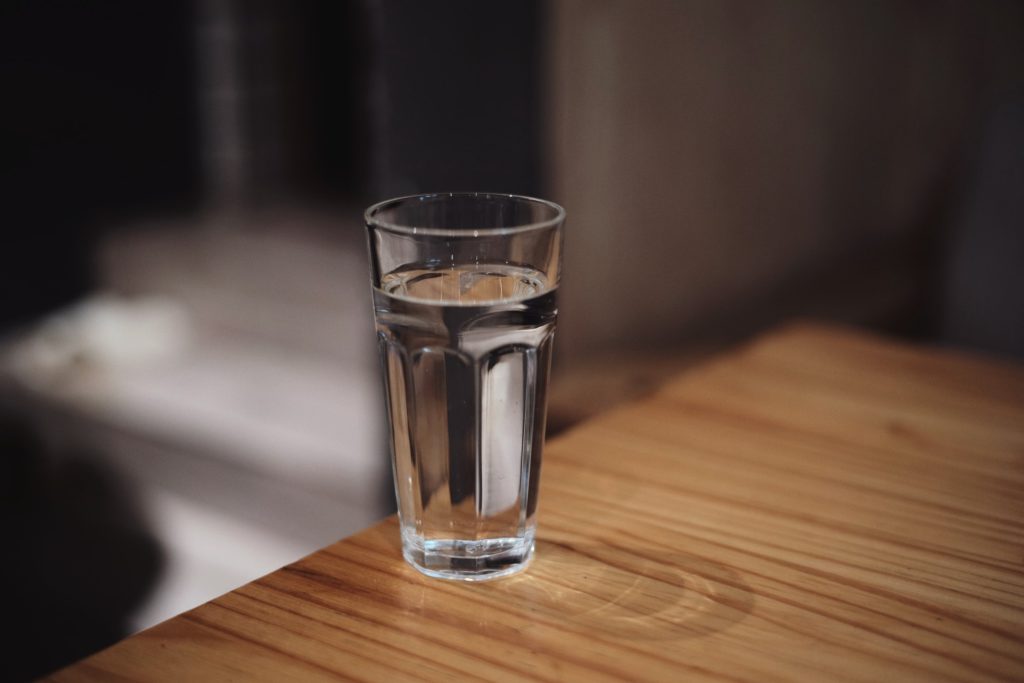
Water
Dehydration is a stress on the body and will trigger the stress response. One study found that cortisol was higher during dehydration than during normal hydration levels (Maresh CM, 2006).
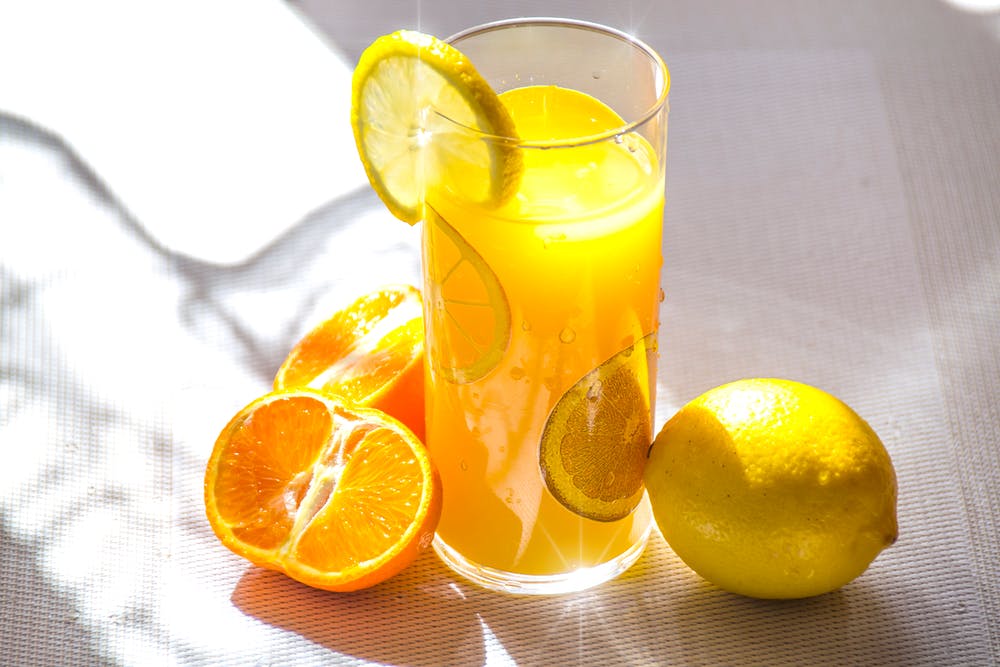
Vitamin C
In rats, vitamin C reduced the levels of stress hormones in the blood, and reduced other typical indicators of physical and emotional stress (American Chemical Society, 1999).
A more recent human study done with cashew apple juice, which contains high levels of vitamin C, found that 4 weeks of cashew apple juice significantly reduced the stress hormone cortisol, as well as lowered oxidative stress (Prasertsri P, 2019).
For information on some great sources of vitamin C, read our article on healthy fruits!

Black tea
Black tea can help with stress recovery (Steptoe A, 2007). Drinking black tea for six weeks reduced people’s cortisol in response to stress and provided greater relaxation, according to the study participants (Steptoe A, 2007).
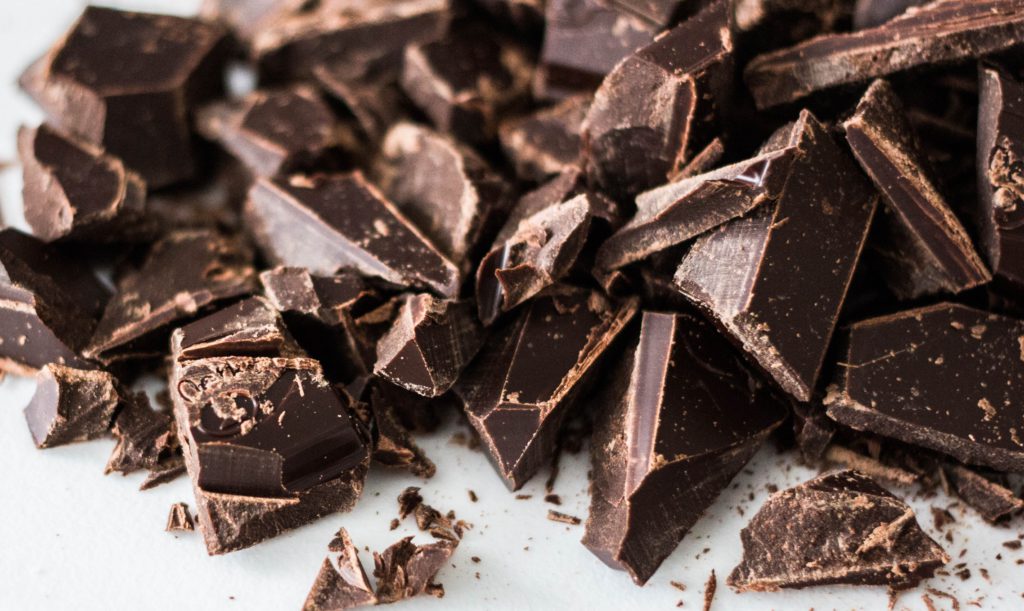
Dark chocolate—hurrah!!
Cocoa in dark chocolate contains flavonoids. Flavonoids have been found to reduce the stress response and cause a fall in cortisol levels (Wirtz PH, 2014). Make sure your dark chocolate has a 70–90% cacao content and is organic and fair trade.
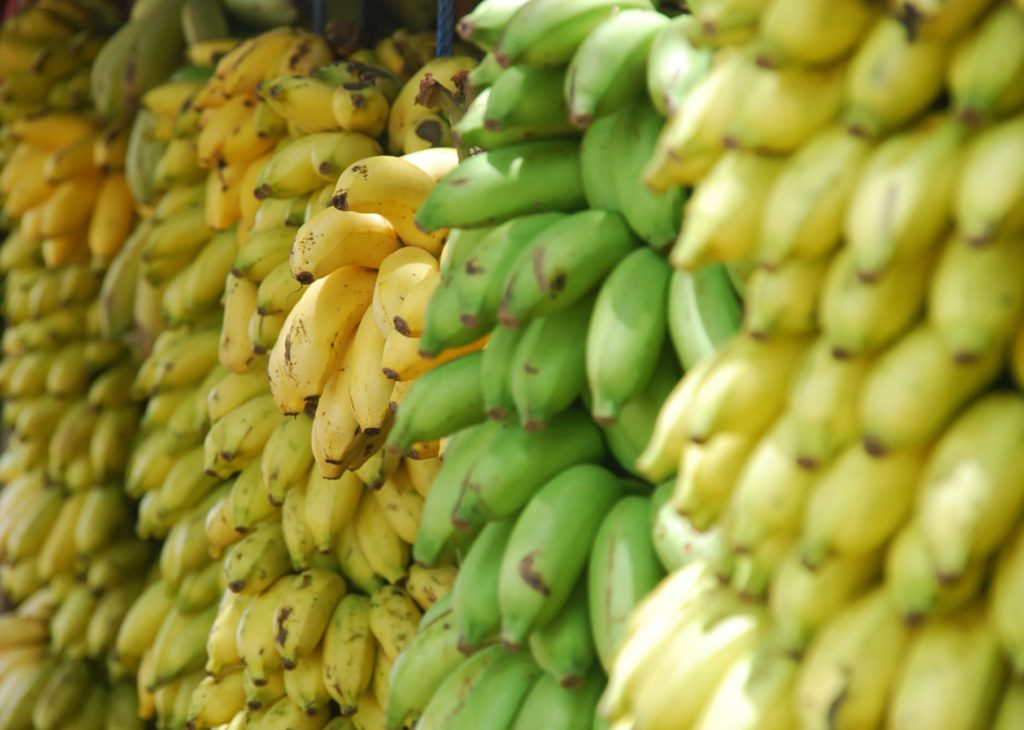
Bananas and pears
One study performed on male cyclists showed a reduction in cortisol from eating bananas and pears on the bike ride, as compared to just drinking water (Nieman DC, 2015).
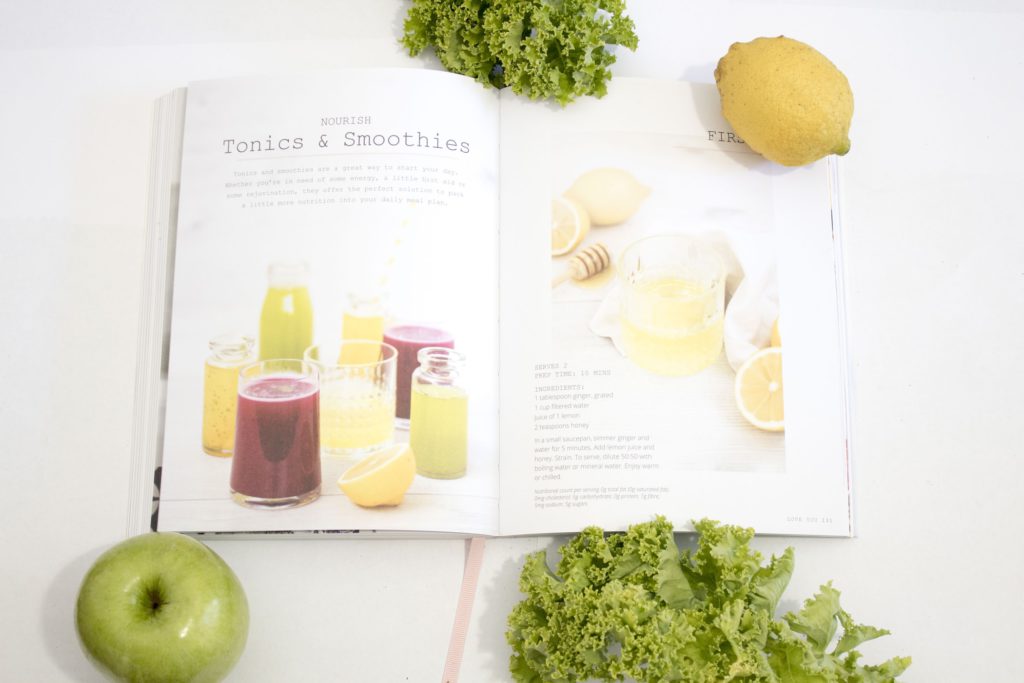
Overall diet advice
To keep cortisol levels reduced and manage stress, follow a diet that balances blood sugar. Any wild swings up or down in blood sugar strain the body and can trigger cortisol production when blood sugar falls too low.
A diet of whole organic foods will avoid this. Avoid high sugar foods as well, since they cause surges in blood sugar levels. Be sure to eat enough, because starvation is a cue to raise cortisol levels.
With a whole-foods diet low in processed items, and these cortisol-lowering foods, you are on your way to a diet that helps to manage stress!

Leave a Reply
You must be logged in to post a comment.